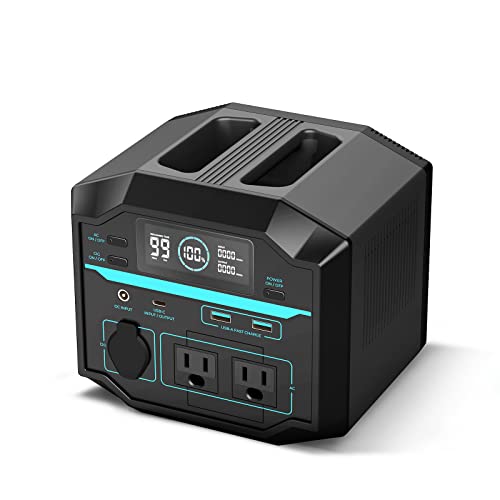Looking for a portable power solution but not sure whether the Renogy 200 or Renogy 500 is right for you? You’re in the right place. In this article, we’ll break down the technical details of both power stations, weigh up their pros and cons, and help you determine which one meets your energy needs – whether you’re camping under the stars or preparing for the unexpected.
Essential Specifications: Power and Portability
| Feature | Renogy 200 | Renogy 500 |
|---|---|---|
| Battery Capacity | 222Wh | 495Wh |
| AC Inverter Output | 200W with 400W surge | 800W with 1600W surge |
| Number of AC Outlets | 1 | 3 |
| USB Ports | 2 USB-A, 1 USB-C | 3 USB-A (1x18W, 2x12W), 1 USB-C (100W) |
| Other Ports | 1 Cigarette Lighter Port | 1 Cigarette Lighter Port |
| Weight | 5.3 pounds | 16.71 pounds |
| Dimensions (inches) | 7.48 x 6.10 x 6.99 | 12.76 x 8.19 x 9.43 |

Portability for Every Adventure
When it comes to portability, the Renogy 200 wins with its lightweight and compact design, making it an inconspicuous companion for outdoor enthusiasts. On the other hand, while the Renogy 500 is heftier, it compensates with a significantly higher power capacity and more AC outlets.
Charging and Recharging: Keeping Your Devices Powered
Recharging Speed
Both Renogy power stations promise rapid recharging capabilities. The Renogy 200 can reach 80% charge within 1.5 hours, while the Renogy 500 offers Renogy’s iTurbo charge technology that can allegedly recharge the unit to full capacity in about an hour with the right conditions.
Solar Charging Abilities
Solar charging is a key feature for both units, allowing you to harness the power of the sun. Both units require separate panel purchases, but they integrate MPPT technology for efficient solar energy conversion. This makes them both an eco-friendly power solution on the go.
Additional Features and Functions
Beyond the basics, the stations have their unique perks. The Renogy 500, for instance, has an app for remote monitoring and control, as well as an iStack function for paralleling two units. The Renogy 200 keeps things straightforward but effective, with a focus on its clean and informative LCD display. Both have several layers of BMS Protection, ensuring safety during operation.
Summing Up the Showdown
It boils down to what you value most: utmost portability or higher power output. The Renogy 200 is nimble and swiftly recharged, ideal for solo adventurers or small groups. The Renogy 500, with more substantial power storage and output, suits those looking to fuel several devices or even small appliances for a group. Whichever you choose, Renogy’s reputation for quality solar products suggests that either power station is a capable companion for your off-grid needs.



Leave a Reply